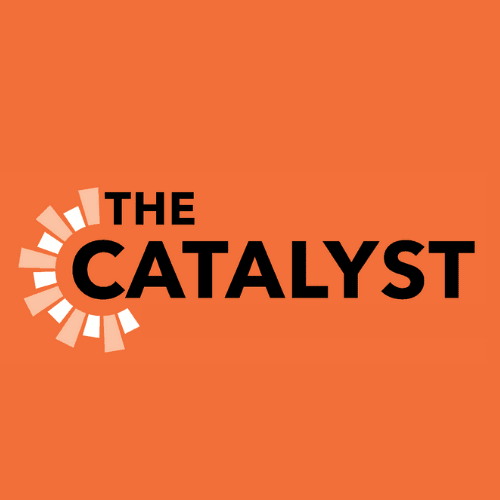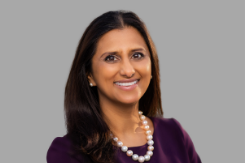Youth Advocacy in Action (Spring 2023)

Women deserve better than the status quo

There is a saying that when the United States sneezes, the world catches a cold. It is that sneeze that PAI works so hard to keep at bay for it has immense implications on the health, safety and vitality of women, youth and at-risk communities globally.
We had great hopes that the first year of the Biden administration and a new Congress would shepherd in bold and positive advances for SRHR. We began 2022 closer than ever to ending the GGR once and for all and were optimistic that funding for global family planning would ― for the first time in 12 years ― see an increase as well.
But in the end, members of Congress defaulted to the status quo in the final 2022 U.S. spending bill, which failed to include permanent GGR repeal, advance SRHR commitments or increase funding for family planning or the United Nations Population Fund (UNFPA). Meanwhile, the current level of U.S. investment does not keep up with inflation, sexual and reproductive health needs continue to rise and the risk that the GGR could be reinstated by any administration is real.
The impact our decisions in the United States have on women, youth and other communities around the world can set them on a path of prosperity or peril. At PAI, we choose to fight for the former, and it is your support that allows us to do so. We must enhance our own U.S. and global advocacy to ensure policies reflect global needs, and that our support never wanes.
In parallel, more than 120 local organizations in 36 countries are part of a vibrant PAI network of advocates working to mitigate the harms of restrictive and regressive actions and ensuring their own governments deliver the right policies, funding and programs so that their own communities can achieve their aspirations.
You can read in this issue how we were so close to achieving major U.S. policy wins and what our way forward is. You will hear from an incredible leader in Kenya who has dedicated her life to the sexual and reproductive health of women and girls and has been at the forefront of policy and funding wins to advance these rights for all. You will also meet a steadfast supporter of our mission and learn why she invests resources, voice and heart in PAI.
These and more are the bright spots for our movement. You are helping us catalyze our collective achievements and ensure that health and rights are guaranteed everywhere. Thank you for your courage to stand with us. Thank you for propelling us forward.
In solidarity,

Nabeeha Kazi Hutchins
President and CEO
P.S. Earlier this year I had the opportunity to speak with Dr. Diana Green Foster, author of “The Turnaway Study,” to discuss her research on the harmful impacts being denied an abortion has on women. You can watch our conversation here.
Voices of communities are key to our fight to end the Global Gag Rule
“There are high stockouts of family planning supplies in the hospitals across the country … The impact has led to increased teenage pregnancies coupled with early marriages, HIV and sexually transmitted infections among youth. The organization has no reliable funding to support its operations.”
— Lamecks Kiyare, executive director, Youth Response for Social Change (YRSC), Malawi
It’s been more than a year since President Biden rescinded the Global Gag Rule (GGR) via executive memorandum. But the harm caused by this disastrous policy lingers, affecting organizations like YRSC and limiting access to essential health care.

PAI’s recent analysis, “The Lingering Harm of the Global Gag Rule,” highlights the perspective of partners in Ethiopia, Kenya, Malawi, Nigeria, Uganda and Zambia, and the evidence was clear: The impact of the GGR and the threat of its return continue to hinder their work, damage critical health systems and leave communities without care.
Analysis like this, which is made possible by your support, is critical to PAI’s U.S. government advocacy, equipping our allies in Congress with evidence of the harmful effects of the GGR and giving voice to the people directly impacted by bad U.S. policy.
Thanks to PAI’s long-standing work on this issue, last fall we reached a milestone: For the first time, language repealing the GGR was included in both the House and Senate appropriations bills for fiscal year 2022. But sexual and reproductive health and rights (SRHR) advocates were dealt a blow in March when Congress ultimately failed to include permanent GGR repeal in the final spending bill.
This wasn’t the outcome any of us had hoped for, but rest assured, this fight is far from over. PAI has already begun preparing to tackle next year’s appropriations bills, where we may have a new chance to bring the policy to an end. We will pursue ways to advance the Global Health, Empowerment and Rights (Global HER) Act, a dedicated bill for permanent repeal. And we will continue to strengthen our support in Congress by elevating evidence and stories of the harm the GGR had — and continues to have — globally.
We also will deepen our work with more than 120 partners across 36 countries so they can further their advocacy priorities and mitigate the impact that U.S. and global policy and funding decisions have on the lives of women, youth and communities around the world.
Your support got us closer than ever to permanent repeal of the GGR. With you by our side, we won’t stop until we reach the finish line.
Dr. Monica Oguttu brings compassionate, comprehensive SRHR care to communities in Kenya
It’s been more than 25 years since Dr. Monica Oguttu worked as a nurse and midwife in the maternity ward of a large hospital in Nairobi, Kenya. But she’s never forgotten the suffering she saw due to unsafe abortion.

“Watching young women and girls come in with complications that we could prevent, bodies being wheeled to the mortuary … the memories are still as fresh as yesterday.”
One case proved to be a turning point: A 16-year-old girl whose backstreet abortion caused damage so severe that the young woman lost her uterus and left the hospital with a permanent colostomy bag.
“I counseled her before she was discharged, and as we were speaking, the girl broke down and asked me ‘Doctor, where were you?’” recalls Dr. Oguttu. “It was very painful to hear. This could have been prevented if we could have talked to her sooner.”
“This changed me completely, and I started thinking about how we could talk to young women about sexual and reproductive health issues outside of big institutions.”
In 1995, Dr. Oguttu launched Kisumu Medical and Education Trust (KMET) — a local Indigenous organization with a mission of breaking the silence on unsafe abortion by documenting the stories of survivors and advocating for expanded access to safe abortion and other sexual and reproductive health services.
In 2010, KMET’s advocacy contributed to an important update to the Kenyan Constitution: For the first time, citizens were guaranteed the right to reproductive health care. This language gave KMET the space to advocate for expanded access to services by building the capacity of primary-level health care providers.
“At the time, only doctors could provide post-abortion care, but there may be only one specialist for every 500,000 people,” explains Dr. Oguttu. “I knew if we trained the midwives in these services, we could reach more women.”
“I was the first midwife in Kenya to be trained on post-abortion care. When they saw I could do this without a doctor holding my hand, they believed for themselves that the nurses could do it.”
Today, a key focus of KMET’s advocacy is ensuring that affordable, high-quality sexual and reproductive health care for underserved communities is included in Kenya’s universal health coverage (UHC) plans.
Since 2019, PAI has been working with KMET to strengthen the organization’s UHC advocacy goals and helped support the creation of a Kisumu SRHR-UHC Alliance — a network of civil society organizations that is currently 17-members strong.
“We were working in silos — all of the organizations were doing their own thing. For the first time, we have found ourselves more organized and aligned on key messages. This has really sustained our advocacy and movement building.”
The alliance scored a major win in 2020 when, for the first time in history, Kisumu County allocated 60 million Kenyan shillings for sexual and reproductive health services, including family planning.
“We celebrated and danced when we saw this in the budget. It was a major achievement for the alliance and for women and girls in Kenya.”
With support from PAI, KMET also developed an innovative way to ensure access to essential care during the COVID-19 pandemic: roving clinics that brought family planning, pre- and antenatal services and child immunizations to markets, villages, churches and schools.
“We served about 12,000 adolescent girls and young women. We reached many adolescents that would otherwise be out of school today pregnant.”

Looking ahead, KMET will use lessons learned from the first phase of its UHC work to scale up its advocacy, focusing on ensuring that health care services are meeting quality standards as well as preparing for upcoming elections in Kenya.
Key to this strategy is working with PAI to document more stories and continue to strengthen the alliance.
“We want the movement to go up to the grassroots. We want to bring women themselves to stand up and demand their rights.”
Why Chandra Jessee believes SRHR are essential for gender equality
 Why is gender equality important to you?
Why is gender equality important to you?
Growing up, I thought that the battle for gender equality had already been won. I took it for granted that everyone knew that boys and girls were equal. But it’s become clear to me that this isn’t the case. There is still so much work to do.
Especially now, a lot of us are looking at systemic injustice, not only around gender bias but also how it intersects with other forms of inequality across race, geography, religion and so much more. Looking at gender issues through a justice and equity lens makes the absolute imperative of achieving gender equality even clearer.
How do you feel that PAI advances gender equality?
Unless a woman has control over her life, health and body, she doesn’t have an equal role in her family, community or society. SRHR are the keystone to enabling gender equality, and I’m continually impressed by the passion PAI brings to this work.
I also love the way PAI collaborates with partners that best know the local context. Not only is this a more respectful and effective approach, but it also better enables PAI to be responsive to needs and resilient when challenges arise.
Why did you decide to support PAI, first as an individual donor and later through your foundation, InMaat?
I care deeply about the rights and equality of women and girls but know I’m not the expert on how to achieve this. The people on the ground are, and I want to invest in their work in a meaningful and impactful way.
At InMaat, this means trusting the organizations we partner with and making our support as unrestricted and streamlined as possible so staff can focus on their work and mission.
If you think about it, it’s the same principle behind SRHR: By trusting women to decide what’s best for their health and lives and giving them access to the information and services they need, they can make the choices that are best for them.
We are fighting back against the onslaught of harmful policies that discard reproductive rights.
Stay informed about the issues impacting sexual and reproductive health and rights.
